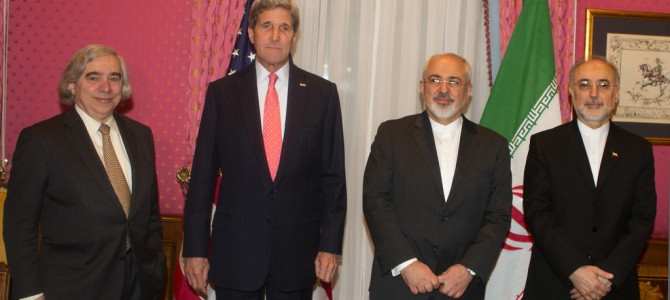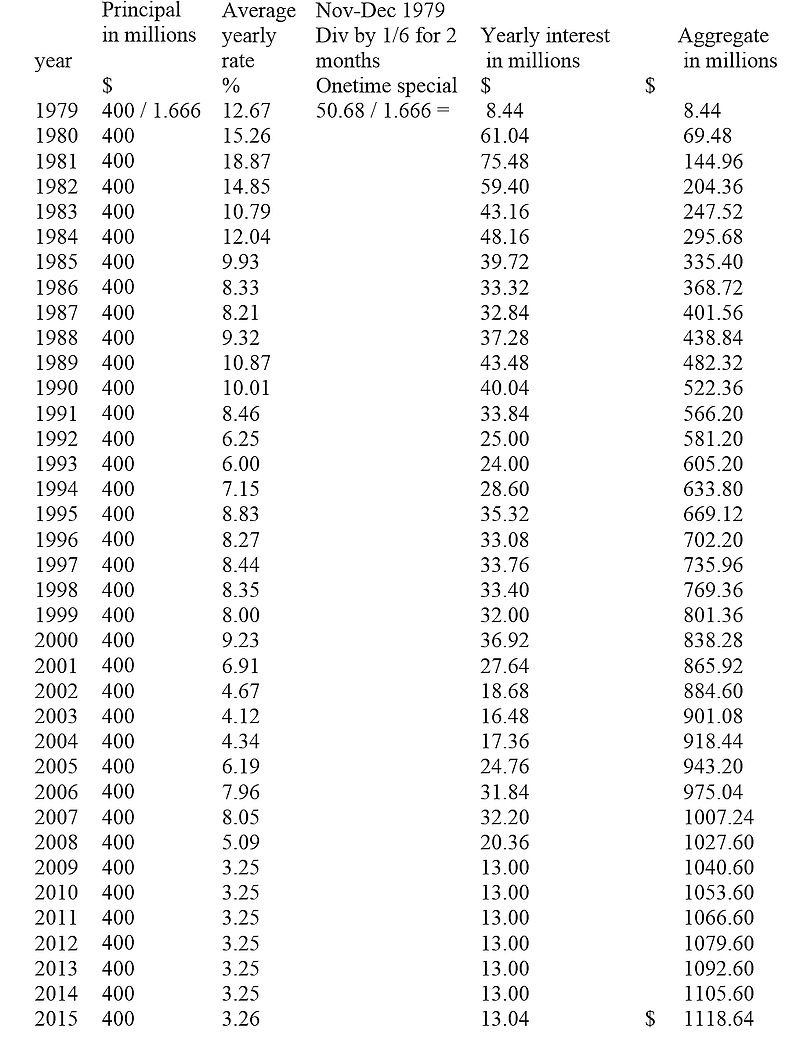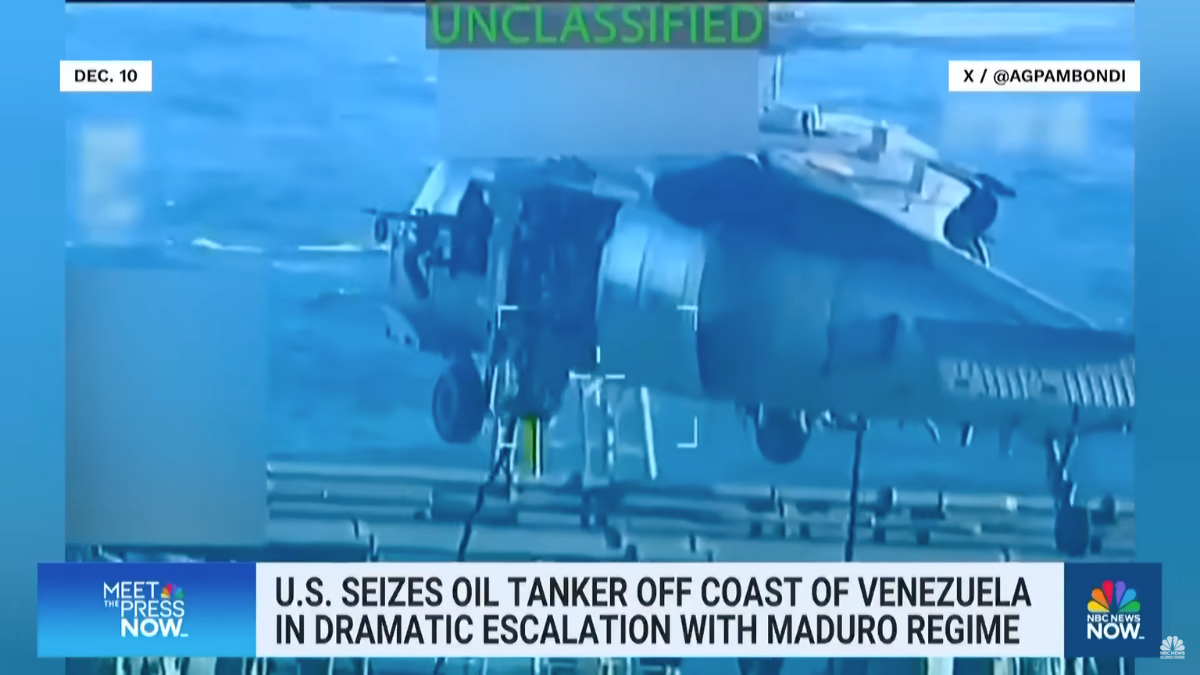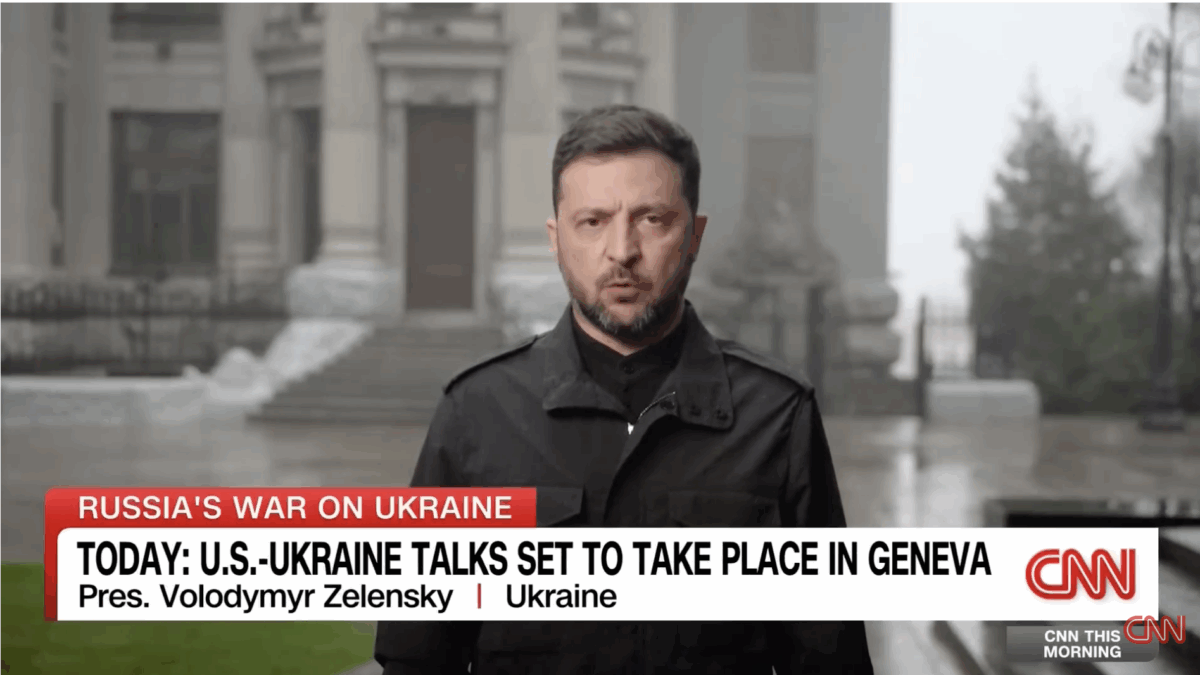
While the Congress and the press were focused on trying to catch the president in a lie about paying $400 million in ransom to get four prisoners back from Iran, the president was getting away with an even bigger lie. The Obama administration said it saved American taxpayers money by arranging a private early settlement in a case that was before the Iran-U.S. Claims Tribunal. If they waited for the tribunal to hand down an award, they said, the interest on the $400 million principal would have been as much as $10 billion. That sounds very nice. But it’s not true.
To see how much money the administration saved American taxpayers, we begin in the middle, with Julia Frifield, an assistant secretary of State. Referring to the January 2016 settlement of the now-infamous claim Iran brought to the Iran-U.S. Claims Tribunal, in a letter to Rep. Mike Pompeo his office released back in March, Frifield said:
If Iran’s claim for the trust fund balance and interest had gone to decision in the tribunal, the United States could well have faced significant exposure in the billions of dollars…We were able to secure a favorable resolution on the interest owed to Iran and avoid a much larger tribunal award against us, saving the U.S. taxpayers a significant amount of money.
Sadly, nothing Frifield said in this statement, like similar remarks made by President Obama, Secretary of State John Kerry, and State Department spokesman John Kirby, is true. Firstly, the administration’s insistence that an award was imminent is questionable, considering that the claim had been lingering for more than 35 years. It was Kirby, at an August 18 State Department daily briefing, who actually tried to slip in that the money had already been awarded.
Even if one were to assume for the sake of argument, however, that an award had been pending, it was not in the best interests of the American taxpayer to settle this deal outside of the tribunal. Kerry was the first to demonstrate he had graduated college without being able to do math. In his official release on January 17, 2016 regarding the conclusion of the prisoner swap and the claim’s settlement, he wrote,
This is the latest of a series of important settlements reached over the past 35 years at the Hague Tribunal. In constructive bilateral discussions, we arrived at a fair settlement to this claim, which due to litigation risk, remains in the best interests of the United States.
Iran will receive the balance of $400 million in the Trust Fund, as well as a roughly $1.3 billion compromise on the interest. Iran’s recovery was fixed at a reasonable rate of interest and therefore Iran is unable to pursue a bigger Tribunal award against us, preventing U.S. taxpayers from being obligated to a larger amount of money.
Kerry’s story sounded so good that on August 4, the day after the Wall Street Journal broke the story on the cash transfer, the president repeated it and discounted anyone who thought his administration had cut a bad deal.
… at the time we explained that Iran had pressed a claim before an international tribunal about them recovering money of theirs that we had frozen; that, as a consequence of its working its way through the international tribunal, it was the assessment of our lawyers that we were now at a point where there was significant litigation risk and we could end up costing ourselves billions of dollars. It was their advice and suggestion that we settle. (emphasis added)
The president tried to make it sound as if this was the only claim that had passed through the Iran-U.S. Claims Tribunal over the past 35 years, rather than the more than 4,000 that have been to The Hague and back. This tribunal’s method of calculating interest has thus been known for some time, and it doesn’t match the administration’s math.
In an August 18 New York Times article, Kirby repeated the mantra:
‘We were able to conclude multiple strands of diplomacy within a 24-hour period, including implementation of the nuclear deal, the prisoner talks and a settlement of an outstanding Hague Tribunal claim, which saved American taxpayers potentially billions of dollars,’ he said, a reference to estimates that the United States would have had to pay far more if it lost the case in The Hague.
Yet all these claims about saving money by taking an early settlement are blatantly false. That alone kicks the legs out from beneath their narrative that this savings was a key reason for settling the issue outside the tribunal.
The Obama Administration Can’t Do Math
On July 2, 2014, under the Obama administration, less than two years before this out-of-court settlement, the Iran-U.S. Claims Tribunal handed down another award in which the United States was also the defendant. In Award NO. 602-A15 (IV)A24-FT-EN, the tribunal laid out the terms of the interest to be paid on the “pre-Judgment” sum in that award. That would be the sum the tribunal accepted as the amount of principal to which any interest would be applied.
The January 2016 settlement is part of Case B1, filed by Iran in 1981, mostly dealing with military hardware it purchased through the Foreign Military Sales Program (FMSP). This tribunal has seen more than 4,000 claims since it first met in July 1981, as a result of the Algerian Declarations. Enough awards have been made public that a precedent for payments is well-established by now.
Doing the math using the interest formula, the $1.3 billion in interest the Obama administration handed over to the Iranians this year is actually more interest than the amount that would have been applied had the tribunal decreed an award, rather than the Obama administration arranging for a private settlement.
Here’s how it works, as stated in the above-cited Award 602-A15 (IV)A24-FT-EN:
Accordingly, having considered all relevant circumstances and the submissions made, in the present Cases, the Tribunal deems it fair and reasonable to award Iran simple prejudgment interest on all amounts awarded to Iran at an annual rate (365-day basis) equal to the average prime bank lending rate in the United States during the period from the dates the Tribunal has determined that those amounts are due up to and including the date of this Award. In selecting the prime bank lending rate in the United States as the rate of interest applicable in these Cases, the Tribunal was also mindful of Article 7.4.9 (2) of the UNIDROIT Principles 2010, which provides: The rate of interest shall be the average bank short-term lending rate to prime borrowers prevailing for the currency of payment at the place for payment, or where no such rate exists at that place, then the same rate in the State of the currency of payment. In the absence of such a rate at either place the rate of interest shall be the appropriate rate fixed by the law of the State of the currency of payment.
Using this formula and applying it to $400 million beginning in November 1979, when President Carter froze transfers to Iran of pre-paid military hardware purchased through the FMSP, and continuing for a period of 35 years and two months until the end of December 2015, the accrued interest would have come to $1,118,640,000.00, or in round terms, $1.12 billion. That figure is millions less than the $1.3 billion in interest the Obama administration actually paid to Iran. So not only was there was no rush, obviously there was another motivation to get this deal done, and do it in cash.
If one were to use the amount in legal and administrative fees paid in Award 602-A15, which was in the neighborhood of $850,000, and round that figure up to $1 million, and add that to the already rounded-up figure of $1.12 billion of applied interest, the total interest and other charges for costs and attorneys’ fees adds up to less than $1.25 billion obviously millions less than the $1.3 billion the administration actually paid.
Even with somewhat rounded-up numbers, the Obama administration paid somewhere around $189 million more than it would have had to pay in interest under an actual award from the tribunal that concluded at the same time they negotiated a settlement.


According to Frifield, “Iran was of course seeking very high rates of interest for a period over three decades.” That very high interest rate was probably the same across-the-board 10 percent interest Iran was seeking in the claim that yielded Award 602-A15 (IV)A24-FT-EN. The tribunal denied that rate from the beginning of the award interest calculations. But even using that 10 percent figure would have only yielded Iran $1,406,532,000.00. Even this amount is well below the “potentially billions of dollars” in interest the administration is claiming it has saved.
This new information puts a dagger into the administration’s claim that taking the deal when they did saved American taxpayers from a much larger penalty. Further, the administration’s explanation is questionable. If Iran could have gotten a much larger settlement from the tribunal, why would they have settled for less? We see from the actual numbers that Iran received a better deal by settling with the United States than they would have received from the tribunal had the claim been decided with an award.
It is quite evident that the administration’s cover story doesn’t hold water.









